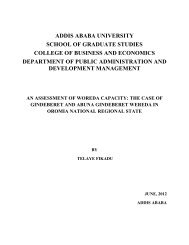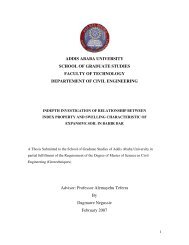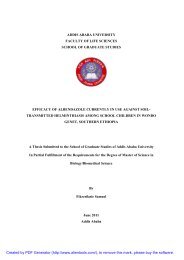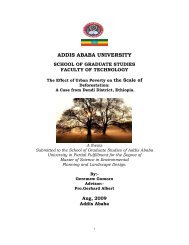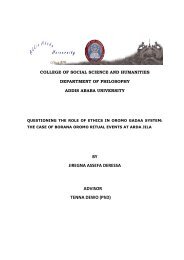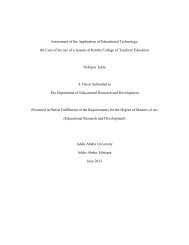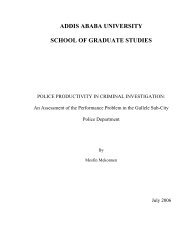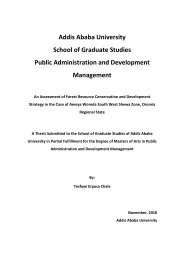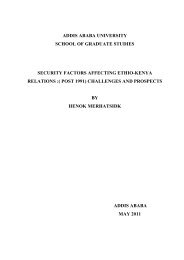FACTORS THAT CONTRIBUTE TO THE PROBLEMS EFL ...
FACTORS THAT CONTRIBUTE TO THE PROBLEMS EFL ...
FACTORS THAT CONTRIBUTE TO THE PROBLEMS EFL ...
Create successful ePaper yourself
Turn your PDF publications into a flip-book with our unique Google optimized e-Paper software.
2.3.1 Text Characteristic<br />
One of the major factors that is believed to affect listening comprehension is<br />
text characteristics. According to Carroll (1977) and Sheils (1988), the density and<br />
explicitness of information contained in the speech; length and conceptual difficulty<br />
of the text; and the degree of attractiveness of the message influence the success<br />
or failure of listening comprehension. That is, as soon as the text becomes less<br />
explicit or less attractive or conceptually more difficult, comprehension suffers. The<br />
details are presented as follows.<br />
2.3.1.1. Length and density of the text<br />
In learning a foreign language, listening and interpreting unfamiliar sounds,<br />
lexis and syntax for long stretches of time are tiring. This happens to the fact that<br />
many learners seem to work much harder than necessary aiming for accurate<br />
perception and interpretation of every word/point they hear. In a long <strong>EFL</strong> listening<br />
comprehension exercise a learner’s grasp of the message is much better at the<br />
beginning and gets progressively worse as he/she goes on. This may be partly due<br />
to fatigue. The listener may run out of the energy necessary to absorb and interpret<br />
the strange sounds. It seems for this reason that many writers prescribe a short<br />
listening text. For example, Atkins et al (1995) assert that a short listening text<br />
reduces the complexity of comprehension by reducing tiredness and lapse of<br />
concentration. Indeed, <strong>EFL</strong> learners find short simple passages with the minimum<br />
of necessary information easier to follow; this gives them more opportunity to grasp<br />
the information.<br />
With regard to the density of the message, many writers (Ur, 1984;<br />
Underwood, 1989; McDonough & Shaw, 1993) claim that information is packed<br />
less densely in the spoken language than in the written language. If a written<br />
discourse is transformed to a spoken discourse and if used for the teaching of<br />
listening comprehension, it sounds unnatural and becomes difficult to understand.<br />
According to Carroll (1977), when a message contains more information that can<br />
not be stored easily in memory, special listening skills and extra effort are required<br />
to understand and recall this information. In this case, therefore, if the listener does<br />
not possess or use the skills, he/she may fail to understand the information.<br />
13




